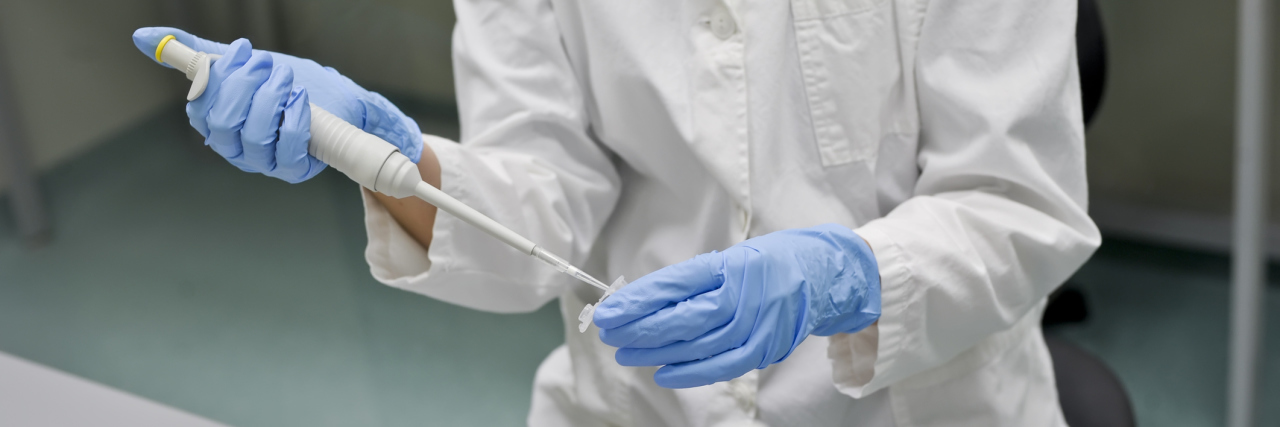It typically takes between seven and 10 years to get diagnosed with endometriosis, a process that often involves multiple doctors, misdiagnoses, and eventually laparoscopic surgery to officially determine the presence of endometriosis. But scientists say they have created a simple, at-home diagnostic test they say will allow women to discover if they have endometriosis without the need for surgery.
Those interested in taking the test, which was developed by DotLab in San Francisco and announced earlier this month, can order a test kit online with a prescription from their physician, mail a saliva sample back to the lab and then view their results online.
To determine the diagnosis, DotLab scientists measure levels of genetic material in the saliva called microRNA. They’ve identified types of microRNA that are “significantly elevated” in women with endometriosis, according to research conducted by DotLab and published in the journal “Fertility and Sterility” this month. The test can be taken periodically over time, to track if the disease has progressed or responded to treatment.
It’s important to note that though the test seeks to eliminate the need for surgery to diagnose endometriosis, the “gold standard” of treatment is still excision surgery to remove endometriosis tissue, which can be found throughout the body including the ovaries, fallopian tubes, surface of the uterus, bowel and in rare cases outside the pelvis.
An estimated one in 10 women live with endometriosis worldwide, but it’s often difficult to diagnose due to a lack of awareness among medical professionals as well as the stigma that it’s “normal” for women to experience high levels of pain during their menstrual cycle and the fact that, currently, the only way to diagnose is through expensive, invasive surgery.
“It’s inexcusable that, for many women, those are lost years of excruciating pain, or not knowing why they’re not able to get pregnant,” Heather Bowerman, a bioengineer and CEO of DotLab, told New Scientist.
The test is not available to order, but the DotLab website says it will be available “soon.”
Thinkstock photo by andjic

